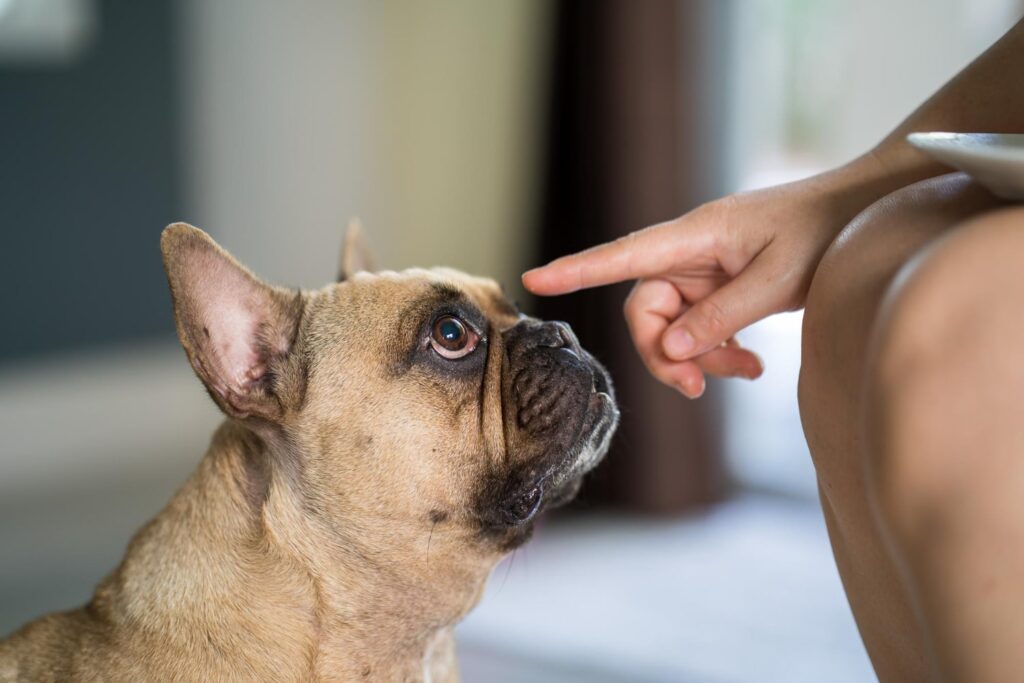As a responsible dog owner, it is essential to ensure your furry friend stays healthy and happy. One common health concern for dogs is worm infestations, which can lead to various health issues if not addressed promptly.
While there are various deworming medications available, some pet owners prefer natural alternatives, such as using tobacco.
In this comprehensive guide, we will explore the topic “how to deworm a dog with tobacco” and cover everything you need to know to keep your dog free from worms.
Why Do Dogs Have Worms?

Dogs can contract worms from various sources, including contaminated food, water, or soil. Puppies can also acquire worms from their mother during birth or through her milk.
Common types of worms in dogs include roundworms, hookworms, tapeworms, and whipworms. These internal parasites can cause digestive issues, weight loss, and other health problems in dogs.
Is It Dangerous for Dogs to Have Worms?

Yes, it can be dangerous for dogs to have worms. Worm infestations can weaken your dog’s immune system, leading to malnutrition and anemia.
Prolonged infestations can cause severe health complications, especially in young puppies and older dogs. Regular deworming is crucial to protect your pet’s health and well-being.
Why Does Tobacco Kill Worms?

Tobacco contains a natural substance called nicotine, which is toxic to worms. When ingested by the worms, nicotine disrupts their nervous system and leads to paralysis, eventually causing their death.
However, it’s essential to use tobacco for deworming with caution, as excessive amounts can be harmful to dogs too.
Types of Worms in Dogs
Roundworms: These are the most common intestinal parasites in dogs. They resemble spaghetti and can be transmitted from the mother to puppies during nursing.
Hookworms: Hookworms attach themselves to the intestinal wall and feed on the dog’s blood. They can also be transmitted through ingestion and skin contact.
Tapeworms: Tapeworms are long and flat worms that attach to the dog’s intestines and absorb nutrients. Dogs can get tapeworms by ingesting fleas or infected animals.
Whipworms: Whipworms reside in the dog’s cecum and colon, causing irritation and inflammation. Ingesting contaminated soil is a common way dogs get whipworms.
How to Deworm Your Dog With Tobacco

Before proceeding with the tobacco deworming method, it’s essential to consult your veterinarian to ensure your dog doesn’t have any underlying health issues that could make this treatment unsafe. Once you have the green light, follow these steps:
Gather Supplies: You’ll need loose tobacco (free of additives), a mortar and pestle, and dog treats or food.
Calculate the Dosage: Determine the appropriate dosage based on your dog’s weight and the strength of the tobacco. Your vet can assist with this calculation.
Prepare the Tobacco: Grind the tobacco into a fine powder using a mortar and pestle.
Mix with Treats or Food: Sprinkle the calculated dosage of powdered tobacco onto your dog’s favorite treats or food. Ensure your dog consumes the entire dose.
Observe and Monitor: Keep a close eye on your dog for any adverse reactions and monitor their bowel movements for the presence of worms.
Won’t It Hurt My Dog?
When administered correctly and in the appropriate dosage, tobacco can effectively kill worms without causing harm to your dog. However, it’s crucial to use only pure tobacco without any additives, as certain chemicals can be harmful to dogs.
Additionally, tobacco should only be used as a deworming treatment under the guidance of your veterinarian.
Other Natural Remedies for Deworming

While tobacco is one natural method, there are other alternatives to consider:
Pumpkin Seeds: Pumpkin seeds contain an amino acid that can paralyze and expel worms. Grind the seeds and mix them with your dog’s food.
Carrots: Carrots are rich in fiber, which helps flush out worms from the digestive system. Serve them as a healthy treat or blend them into your dog’s food.
Coconut Oil: Coconut oil has anti-parasitic properties. Add a small amount to your dog’s food regularly.
Diatomaceous Earth: This natural powder is safe for dogs but lethal to parasites. Mix a small amount into your dog’s food.
Always consult your vet before trying any natural deworming remedies.
Common Mistakes To Avoid When Deworming Your Dog At Home

Overdosing: Using excessive amounts of tobacco to deworm a dog or other remedies can be harmful. Stick to the recommended dosage.
Ignoring Vet Advice: Always seek professional guidance before attempting any home deworming methods.
Incomplete Treatment: Follow the full course of treatment to ensure all worms are eradicated.
Neglecting Hygiene: Keep your dog’s living area clean to prevent re-infestation.
Using Low-Quality Products: If you choose a commercial dewormer, opt for reputable brands.
Treating Only One Pet: If you have multiple pets, deworm all of them simultaneously.
FAQs
Q: Can I use any type of tobacco for deworming?
A: No, you must use loose tobacco without additives. Cigarettes or chewing tobacco are not suitable for deworming.
Q: How often should I deworm my dog?
A: The frequency of deworming depends on your dog’s age, lifestyle, and risk of exposure to worms. Consult your vet for a personalized schedule.
Q: Are there any side effects of using tobacco for deworming?
A: When used correctly, tobacco should not cause significant side effects. However, some dogs may experience mild digestive upset. You can easily deworm a dog with tobacco.
Q: Can I use tobacco deworming for puppies?
A: Puppies are more sensitive to toxins, so tobacco deworming is not recommended for them. Stick to conventional deworming methods for puppies.
Q: What if my dog doesn’t like the taste of tobacco?
A: If your dog refuses to eat the treated treats or food, consult your vet for an alternative deworming method.
Q: Can I stop deworming once the worms are gone?
A: Regular deworming is essential to prevent re-infestation. Follow your vet’s recommendations for a deworming schedule.
Conclusion
Deworming your dog is a vital aspect of responsible pet ownership. While tobacco can be an effective natural remedy for deworming, it must be used cautiously and under professional guidance.
Regularly consult your veterinarian for the best deworming approach for your dog’s specific needs.
By staying informed and taking proactive measures, you can ensure your furry companion enjoys a healthy and worm-free life.

